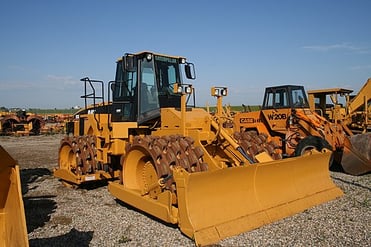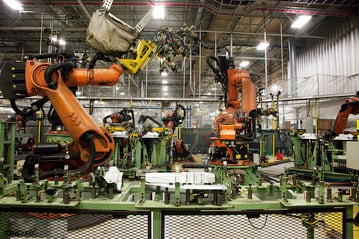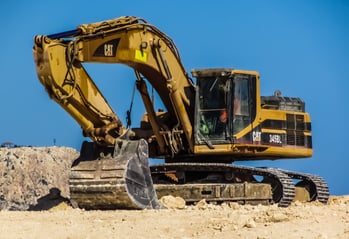
Image source: Compactor. (2023, April 10). In Wikipedia. https://en.wikipedia.org/wiki/Compactor
Whether you own a company or are invested in the business as a principal, financial institution, or related third party, there may come a time when you need to liquidate some or all of the assets associated with the operation. Liquidation is a somewhat more ominous word for resale, typically where there is an urgency to sell the assets or that those individuals involved are not in the business of selling equipment.
As an appraiser, we are asked about this issue quite often, regarding the best approach and realistically what to expect when entering these unfamiliar waters. No single answer covers every situation, however, there are guidelines that can assist the reseller/liquidator who lacks any prior experience in this area.
If your business is reducing operations, or shutting down altogether, and the company owns considerable equipment and personal property, it is important to plan for a liquidation far in advance, where personnel remains available to aid in maintaining the condition of the equipment and can assist in showing the machinery to purchasers.
This will provide opportunities to arrange for the sale of your assets ahead of the actual closure, and allow buyers to preview them while still in operation. In an ideal world, you could effectively sell the assets as part of an ongoing business enterprise, however, if the company can’t sustain profitability, a more realistic scenario would be to locate competitors and other end users who will pay fair market value, based on the machinery remaining in good operable condition until sold.
If neither of these options is feasible, then a comprehensive liquidation effort should take place to realize an orderly (private sale) or forced (auction) liquidation value in a timely fashion.
Communication and timeliness are crucial in a liquidation effort, as the longer it takes to formulate a game plan and ultimately sell the assets, the less value will be realized. If equipment has been neglected for months and begins to fall into poor condition, buyers will no longer be comfortable offering a fair price. It is critical that the assets continue to be maintained, even after they cease operating. Hiring a mechanic to start and run the equipment on a weekly or bi-monthly basis is important to maintaining the condition.
Hiring a private reseller or an auction company who can coordinate the sale of the assets is a good option to complete the liquidation. An experienced third party will oversee the resale effort, while managing the logistics of the sale, including the security of the location, completing minor repairs, and creating a marketing campaign. This will increase the odds of a successful disposition where you pay a commission based on the sale price.
Regardless of the scenario you face, it is important to plan ahead and spend the time and resources needed to maintain the condition of the equipment, leading to a successful outcome in an otherwise difficult situation.





